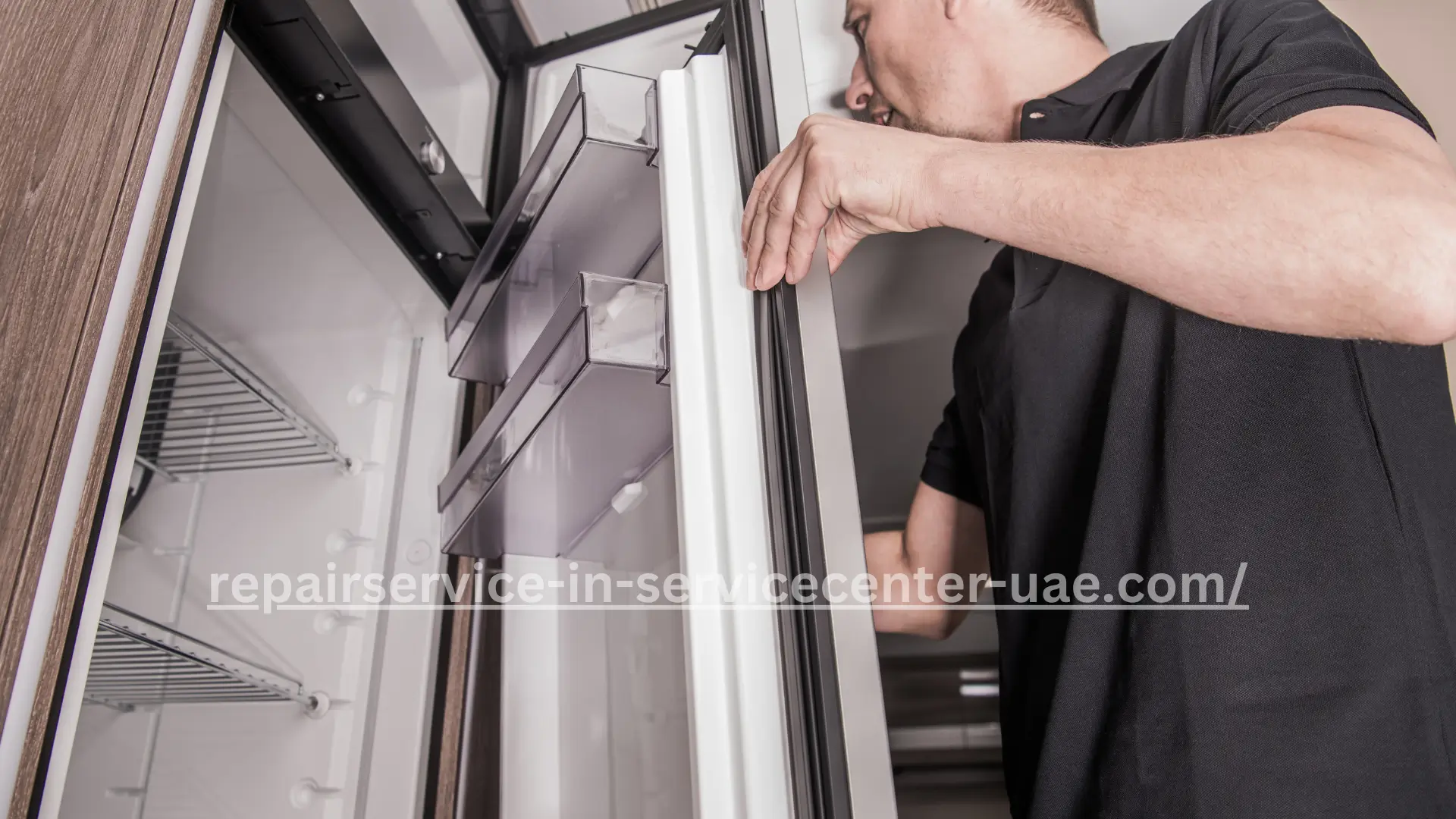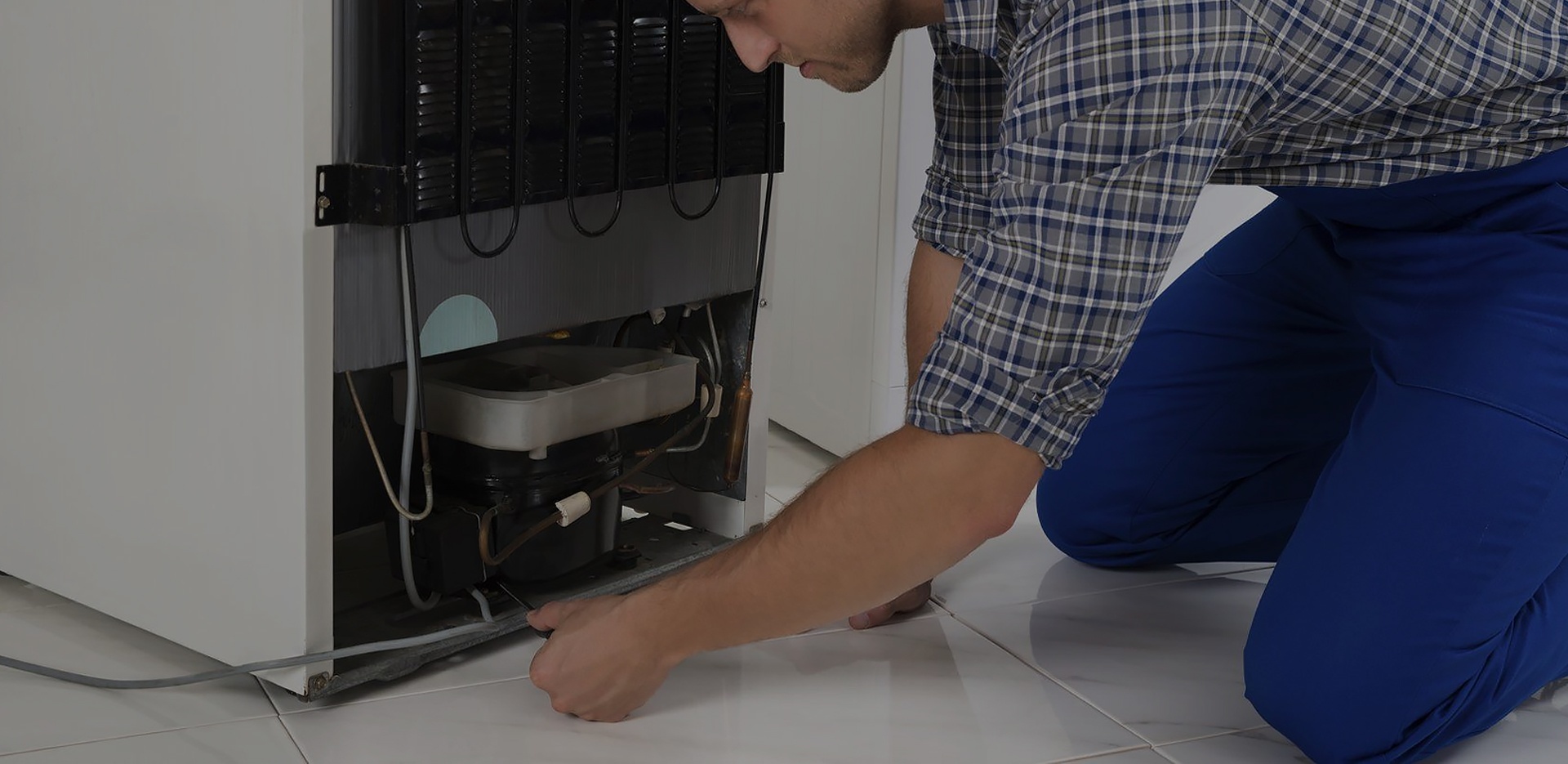Refrigerators are essential appliances in every household, keeping our food fresh and drinks cold. However, when they start making noise, it can be annoying and concerning. A noisy refrigerator might indicate a problem that needs attention before it becomes a bigger issue. In this guide, we’ll walk you through how to troubleshoot a noisy refrigerator, step by step. For expert help, contact us at 0545354777.
Contents
Understanding the Common Causes of a Noisy Refrigerator
A noisy refrigerator can disrupt the peace in your home. Understanding the common causes can help you pinpoint the issue and fix it efficiently. Here are some typical reasons your refrigerator might be noisy:
1. The Compressor
The compressor is the heart of your refrigerator, and it’s responsible for cooling. Over time, it can become noisy due to wear and tear. If the noise is coming from the back of the refrigerator, it might be the compressor.
- Troubleshooting: If the noise persists, it might be time to call a professional. Compressors are complex components, and handling them without expertise can be risky.
2. The Evaporator Fan
The evaporator fan circulates air over the refrigerator coils. When it malfunctions, you might hear a loud noise coming from the freezer section.
- Troubleshooting: To check if the evaporator fan is the issue, open the freezer door. If the noise increases, it’s likely the fan. Try cleaning the fan blades and removing any obstructions. If the problem persists, consider replacing the fan.
3. The Condenser Fan
The condenser fan helps cool the compressor and condenser coils. If it’s obstructed or damaged, it can cause a loud noise.
- Troubleshooting: Locate the condenser fan at the back of your refrigerator. Ensure there are no obstructions and clean the blades. If the fan is damaged, it may need replacement.
Understanding these components and their roles is crucial for diagnosing why your refrigerator might be making noise. However, if you’re unsure, it’s always best to seek professional help. For assistance, call us at 0545354777.
Diagnosing Specific Noises in Your Refrigerator

A noisy refrigerator can make various sounds, each indicating a different potential problem. Recognizing these sounds can help you diagnose and troubleshoot effectively. Here’s a guide to some common refrigerator noises:
1. Humming or Buzzing Noises
A humming or buzzing sound is normal for refrigerators, but if it’s louder than usual, it might indicate a problem with the compressor or the motor.
- Troubleshooting: Check the compressor and motor for any signs of wear or damage. If you’re unsure how to assess them, contact a technician for a professional evaluation.
2. Rattling or Vibrating Noises
Rattling sounds often mean that something is loose or the refrigerator is not stable on the floor.
- Troubleshooting: Make sure the refrigerator is on a level surface. Adjust the feet or place a small pad underneath to stabilize it. Additionally, check for any loose parts inside or outside the refrigerator.
3. Squealing or Chirping Noises
These high-pitched sounds typically come from the evaporator or condenser fan.
- Troubleshooting: Inspect both fans for any signs of obstruction or wear. Clean them carefully, and if the noise persists, consider replacing the faulty fan.
4. Bubbling or Gurgling Noises
These sounds are usually caused by the refrigerant flowing through the coils. While often normal, they can be louder if there’s an issue with the coils.
- Troubleshooting: Ensure the refrigerator is level and check the coils for any visible damage. If the noise seems excessive, a professional should inspect it.
Understanding these noises and their potential causes can help you determine the next steps in troubleshooting your noisy refrigerator. For expert assistance, reach out to us at 0545354777.
Steps to Fix a Noisy Refrigerator
Once you’ve identified the potential source of the noise, you can take steps to fix it. Here’s a detailed guide to help you resolve common issues causing a noisy refrigerator:
1. Inspect and Clean the Fans
Both the evaporator and condenser fans can accumulate dirt and debris, causing noise.
- Cleaning Steps:
- Unplug the refrigerator for safety.
- Locate the fans and use a soft brush or cloth to remove dust and debris.
- Spin the blades manually to ensure they move freely.
- Plug the refrigerator back in and listen for any changes.
2. Check the Compressor
A noisy compressor might require more than just cleaning.
- Inspection Steps:
- Unplug the refrigerator.
- Remove the back panel to access the compressor.
- Check for any visible damage or oil leaks.
- If damaged, consult a professional for repair or replacement.
3. Level the Refrigerator
An unbalanced refrigerator can create rattling noises.
- Leveling Steps:
- Use a level tool to check if the refrigerator is even.
- Adjust the feet by turning them clockwise or counterclockwise to achieve balance.
- Test the door seals to ensure they close properly.
4. Secure Loose Parts
Loose parts can cause unnecessary noise.
- Securing Steps:
- Inspect shelves, drawers, and other removable parts.
- Tighten screws or clips as needed.
- Replace any broken parts to prevent noise and ensure proper function.
By following these steps, you can often resolve the issue of a noisy refrigerator. However, if the problem persists, don’t hesitate to contact a professional technician. For expert help, call us at 0545354777.
When to Call a Professional for Your Noisy Refrigerator
While many issues with a noisy refrigerator can be fixed with DIY methods, some problems require professional expertise. Here’s how to know when it’s time to call a technician:
1. Persistent Noise After Troubleshooting
If you’ve followed all troubleshooting steps and the noise continues, it might indicate a more complex problem.
- Professional Assessment: A technician can diagnose issues with internal components and recommend the best course of action.
2. Complex Repairs Involving the Compressor
The compressor is a critical part of your refrigerator, and repairs can be complicated and dangerous without the right tools and knowledge.
- Expert Handling: Professionals have the experience to handle compressor repairs safely and effectively.
3. Electrical Issues
If you suspect an electrical issue is causing the noise, it’s important to call a professional immediately.
- Safety Concerns: Electrical repairs can be dangerous, and a qualified technician will ensure all work is done safely.
4. Frequent or Severe Refrigerant Leaks
Refrigerant leaks can lead to cooling issues and are a significant safety concern.
- Professional Repair: Technicians have the tools to identify and repair leaks, ensuring your refrigerator functions efficiently.
Knowing when to call a professional can save you time and prevent further damage to your appliance. If you’re experiencing any of these issues, reach out to us at 0545354777 for expert assistance.
Preventing Future Noises in Your Refrigerator
Preventative maintenance is key to avoiding issues with a noisy refrigerator. Here are some tips to keep your refrigerator running quietly:
1. Regular Cleaning
Dust and debris can build up over time, affecting various components of your refrigerator.
- Maintenance Tip: Clean the condenser coils and fan blades every six months to prevent buildup.
2. Check for Wear and Tear
Regularly inspect your refrigerator for any signs of wear and tear.
- Maintenance Tip: Replace worn-out parts promptly to avoid further damage and noise.
3. Ensure Proper Installation
Improper installation can lead to various issues, including noise.
- Installation Tip: Make sure your refrigerator is installed on a level surface and has adequate space for ventilation.
4. Keep it Balanced
An unbalanced refrigerator can cause excessive noise and wear on components.
- Maintenance Tip: Regularly check the balance and adjust the feet as needed.
5. Schedule Professional Maintenance
Professional maintenance can help identify potential issues before they become problems.
- Expert Assistance: Schedule an annual check-up with a technician to ensure everything is functioning correctly.
By following these preventative measures, you can extend the life of your refrigerator and keep it running quietly. For regular maintenance services, contact us at 0545354777.
Conclusion
Troubleshooting a noisy refrigerator involves understanding the common causes, diagnosing specific noises, and taking steps to fix them. While many issues can be resolved with a little DIY effort, some problems require professional intervention. Regular maintenance is crucial to preventing future noises and ensuring your refrigerator functions efficiently. If you need help with your noisy refrigerator, don’t hesitate to reach out to our experts at 0545354777. We’re here to help you keep your home quiet and your food fresh.



